Please note that the information contained in this post refers to aerosol can waste generated in a household setting, not in businesses or industry.
You probably have several aerosol cans in your house, garage or shed. They can contain products like whipped cream, spray paint, hairspray and bug spray. When they’re empty, you may not think twice about just throwing them in the trash, but you should. Why, you ask? Well, aerosol cans can contain substances, including the product itself and the gaseous propellant (the stuff that makes the product spray out of the can), which can create dangerous conditions when collected in the trash. They’re pressurized, which means they could explode under certain conditions, causing injuries and damage to our equipment. Additionally, the product contained in the can could leak out and mix with other chemicals in the load, causing dangerous chemical reactions.
And while there are no federal regulations that prevent aerosol can waste generated in residential settings from being disposed of in the trash or in a landfill, there are a few things to do to help ensure you are doing so safely:
- Make sure cans are completely empty before throwing them away. You may be able to tell if there’s still product in the can by shaking it and listening for a sloshing noise. Empty the can by spraying it until product stops coming out and the can stops making a hissing noise. You shouldn’t attempt to puncture or disable the can or the nozzle as this could be dangerous as well.
- If you can’t empty the can for any reason or if you’re not sure it’s empty, rather than putting it in the trash, take it to a special collection for hazardous chemicals.
- If the can contained a flammable liquid or one that is normally considered hazardous waste, consider taking it to a special collection for hazardous chemicals, even if you think the can is empty. (Legally, household waste is excluded from the definition of hazardous waste, so there are no regulations requiring you to do this.)
Now if you don’t want to throw your cans in the trash, there are other options. These options consist of putting into practice the three Rs—reduce, reuse and recycle. Here’s how:
- Consider avoiding buying aerosol cans when possible. For example, use sunscreen or bug spray lotion that comes in a bottle without a propellant. Or buy reusable spray bottles for oil instead of oil sprays in aerosol cans.
- If you have cans that still contain quite a bit of product that you know you won’t use, donate it to someone who might need it. For example, spray paint could be donated to a local community theater or high school to be used for painting props.
- Investigate recycling options for the cans. Although Granger doesn’t accept these cans in curbside, blue bag or drop-off recycling, recycling opportunities are out there. Look into recycling the cans as part of a special recycling event or taking them to a scrap metal processor. (You might even make some cash!) Just remember, any cans you recycle should also be empty of product and propellant.
